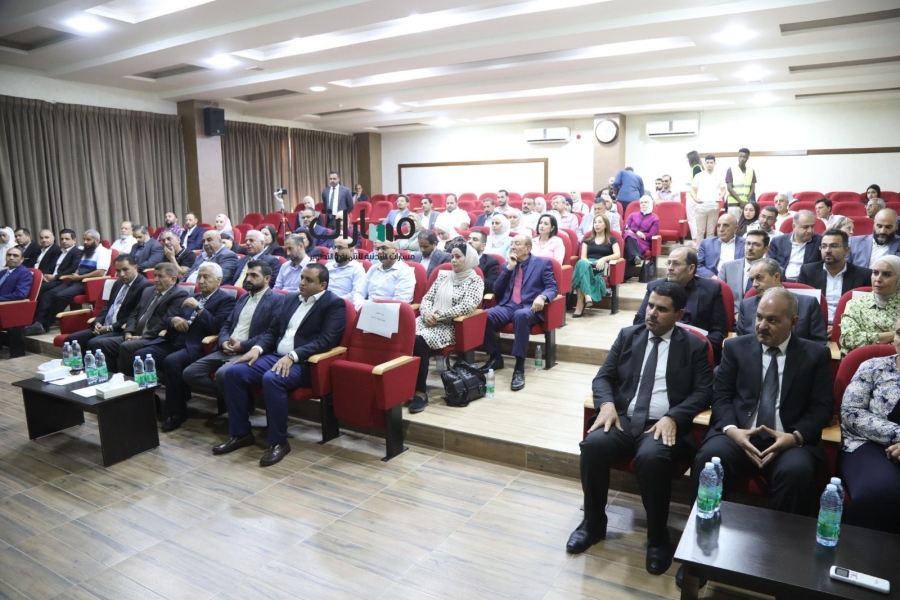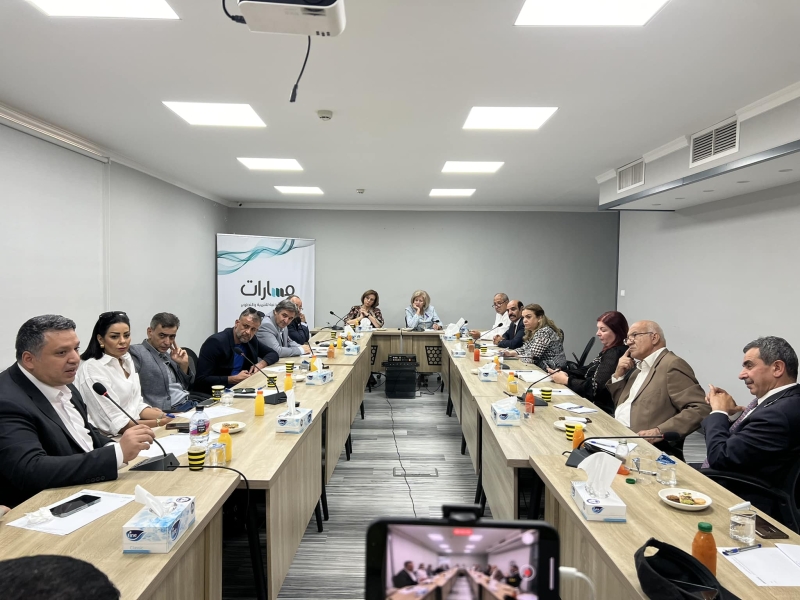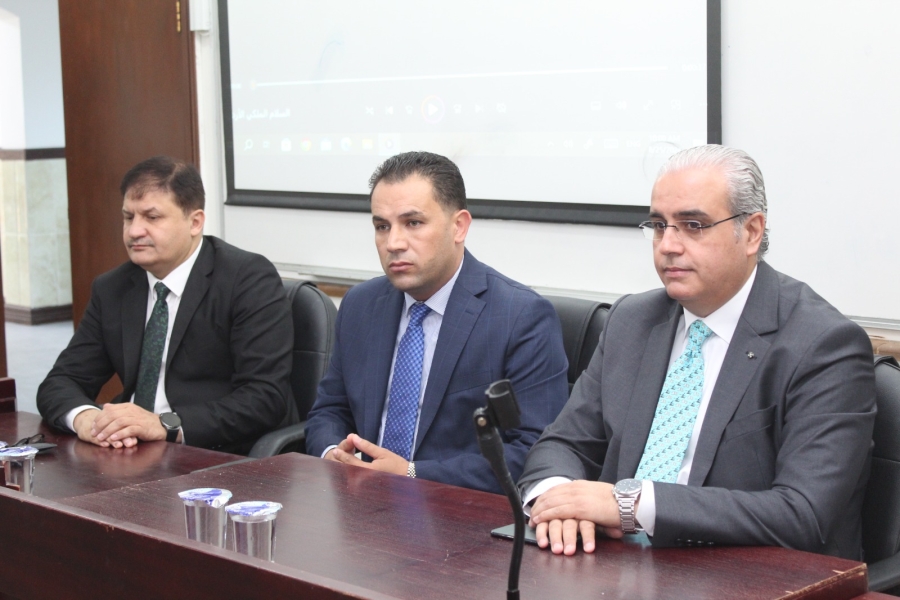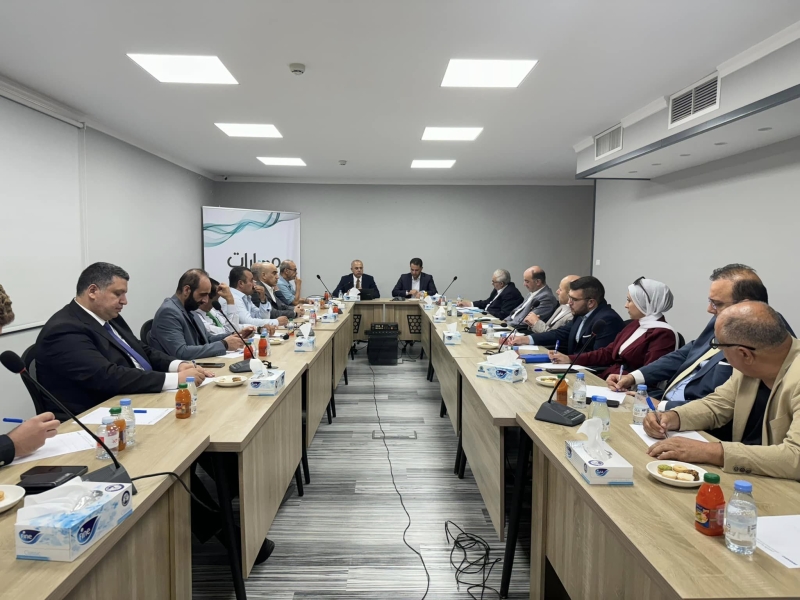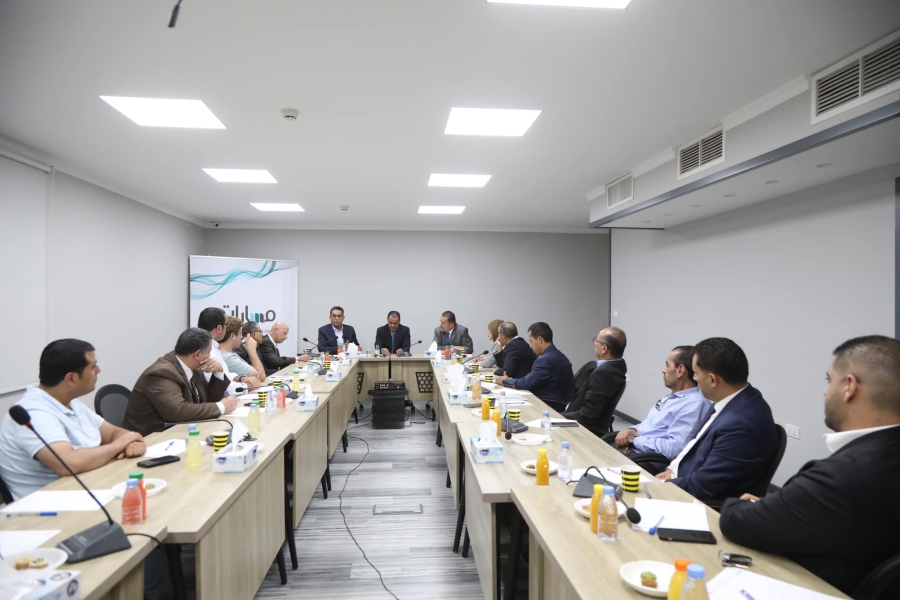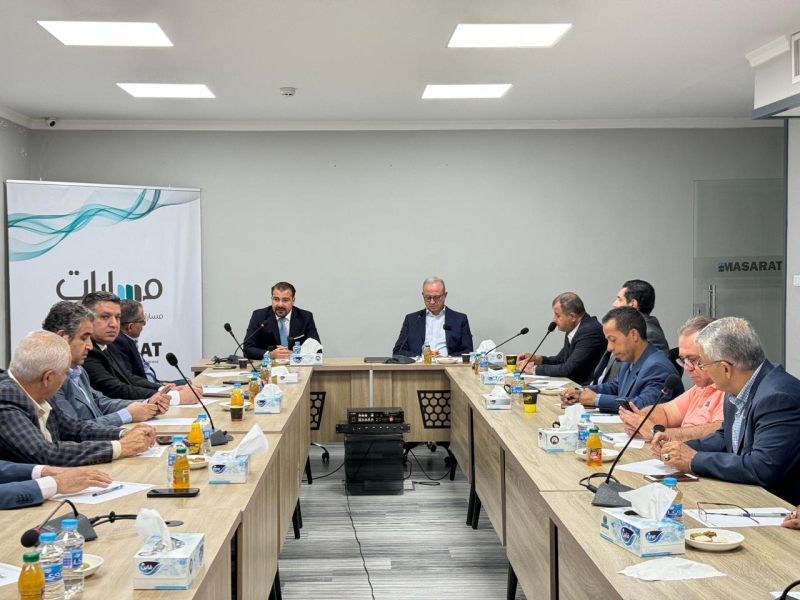A Reading of the Procedures and Results of Parliamentary Elections and the Political Scene
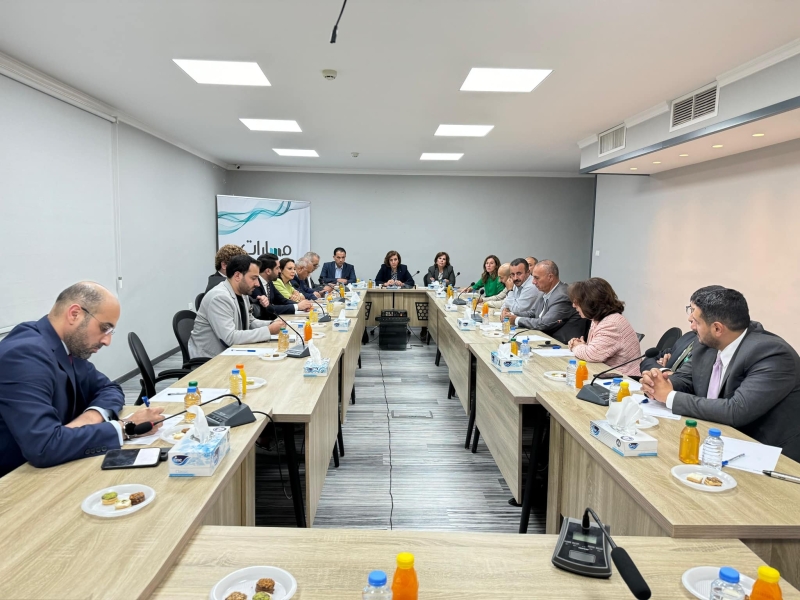
The Jordanian Masarat Foundation for Development and Progress held a dialogue session titled "A Review of Parliamentary Election Procedures and Results and the Political Scene,” attended by officials and experts in Jordanian electoral affairs.
Dr. Abeer Dababneh, a member of the Independent Election Commission Board, initiated the session by emphasizing the need to view parliamentary election results not solely from a political perspective but also from a procedural one.
Dababneh explained that the successful implementation of the elections was possible due to the Commission’s firm belief in its role and responsibility toward Jordan. She highlighted that the most recent election cycle was organized under an entirely new set of laws, regulations, and procedures enacted by the legislative authority in 2020, necessitating intensive studies to formulate the instructions required for their implementation.
She also noted that the law allows any individual with grievances to challenge election results within 15 days of their publication in the official gazette, with the Court of Cassation serving as the final arbiter in such cases.
Dababneh revealed that the Commission had dealt with 44 cases of electoral bribery, referring them to the public prosecutor once sufficient evidence was gathered. Additionally, the Commission investigated thousands of violations related to election campaigning and around 100 cases concerning electoral crimes.
Al-Attoum: The Twentieth Parliament Will Be a Lesson for All
Former Senator Dr. Maisoon Al-Attoum stated that she was unsurprised by the results of the latest parliamentary elections and expressed confidence that there was no interference in the electoral process. She described the Twentieth Parliament as a learning experience for all, emphasizing its composition of party-based seats distributed across various ideologies and perspectives.
Al-Attoum rejected the notion of a "pre-determined roadmap" or manipulated results, describing such views as products of corrupt thinking that serve no one, whether the state, government, or citizens. She also expressed optimism about the dynamic nature of democratic systems, noting that their essence lies in constructive diversity, where differing views engage to negotiate paths toward justice and social balance.
While acknowledging some contradictions in the election results, Al-Attoum highlighted both satisfaction and dissatisfaction. She pointed out that while the Islamic Action Front party seemed to represent the majority with 31% of the votes, this number also reflected broader dominance. However, attention must be given to the silent majority that abstained from voting, which could lead to authoritarianism.
She warned against the potential rise of dictatorship fueled by the isolation and frustration of marginalized groups, emphasizing the risks posed by disengaged parties failing to deliver meaningful change. Al-Attoum called for fostering democratic institutions to counter disillusionment and avoid leaving space for populist and authoritarian narratives.
Bani Ersheid: Strengthening Democracy Requires Balance
Former Secretary-General of the Islamic Action Front Party, Zaki Bani Ersheid, stated that evaluating the election results reveals that the Jordanian state emerged as the biggest beneficiary. He noted that the Twentieth Parliament, as the cornerstone of Jordan's governance system, plays an indispensable role in shaping the legislative and oversight frameworks.
Bani Ersheid suggested that postponing the elections by a year might have increased voter turnout, underscoring the influence of timing and public sentiment on electoral participation. He emphasized that the primary success of these elections lies in partially restoring public trust in the democratic process and ballot boxes.
He called on disengaged voters to reassess their stance, stressing that one of democracy's strengths is its capacity for self-correction. He urged the new parliament to move beyond populist rhetoric and focus on its core legislative and accountability functions.
Rawashdeh: Parliament Faces Critical Challenges
Former Senator Mustafa Rawashdeh emphasized that democracy is not just a term used in political discourse or a slogan but a complex system shaped by society. He argued that true democracy does not exist in isolation and must serve diverse interests rather than favoring one group over others.
Rawashdeh highlighted the proportional representation system as a mechanism that ensures balance and gives voice to diverse perspectives. He described the parliamentary committees as the backbone of the legislative process, fostering collaboration and shared goals among members.
Rawashdeh stressed the need for parliament to rise to its constitutional role amid unprecedented regional instability, asserting that the recent elections reflect the maturity of Jordan’s democratic institutions and its people's commitment to democratic values.

